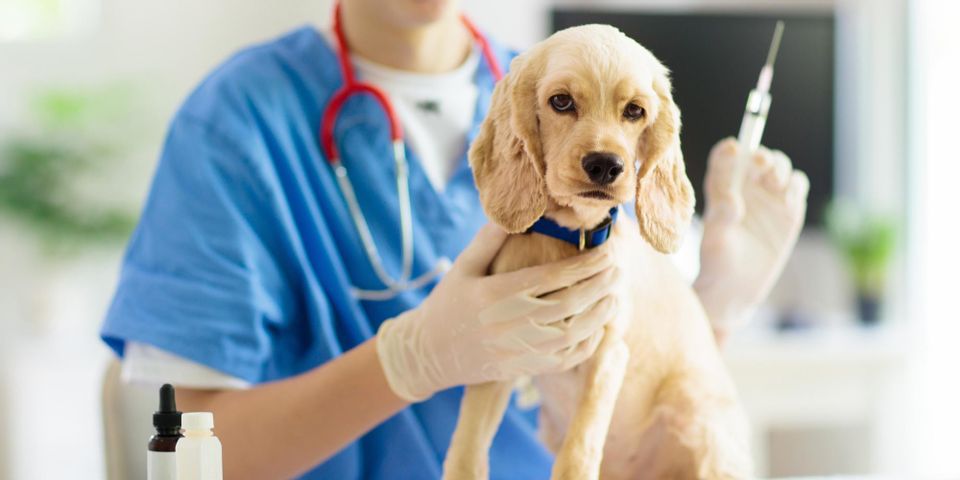
The canine influenza vaccine is a relatively new addition to preventative medicine options. It was first introduced in 2009 to combat strains of flu that began spreading in 2004. Intended to help control outbreaks, veterinarians do not recommend it for all animals. Instead, owners should evaluate their dog’s risks and lifestyle before making the decision to vaccinate.
What Is Canine Influenza?
Dog flu is a respiratory infection. Dogs are vulnerable to the canine influenza virus (CIV) year-round. When infected, they can exhibit multiple symptoms, including:
- Coughing
- Sneezing
- Runny discharge from the nose and eyes
- Lack of energy
- Fever
CIV typically runs its course in two to three weeks; in some cases, the flu can develop into bronchitis or pneumonia. Dogs with weakened immune systems or other health conditions, such as pregnancy, are at higher risk from the disease.
How Is It Transmitted?
 The virus is transferred through bodily fluids, urine, and feces. An infected dog’s sneeze, cough, or bark can transmit it. Shared food bowls, water sources, or toys are also sources for infection.
The virus is transferred through bodily fluids, urine, and feces. An infected dog’s sneeze, cough, or bark can transmit it. Shared food bowls, water sources, or toys are also sources for infection.
Surfaces, skin, and clothing that have been in contact with an infected animal can pass on the infection for up to 48 hours. A dog may be shedding virus cells even if they don’t exhibit flu-like symptoms.
Which Dogs Need the Vaccine?
Animals that frequently interact with potential disease sources can benefit from a vaccination. If pets spend time in boarding facilities or at dog parks, they are more likely to be exposed to the flu.
Dog walkers can carry the virus on their hands or clothing as they travel from house to house. The vaccine cannot guarantee that an animal will not contract the virus, but it can reduce the likelihood. Vaccinated animals are likely to have shorter, less severe cases.
When your furry friends need care, contact the friendly staff at Pet Center Ltd., in Columbia, MO. For over 35 years, their veterinarians have been providing pet owners with state-of-the-art care options. From preventative medicine to surgical needs, they have the knowledge and equipment to keep your animals healthy and happy. Call them at (573) 445-3000 or visit them online to learn more about their services.
About the Business
Have a question? Ask the experts!
Send your question

